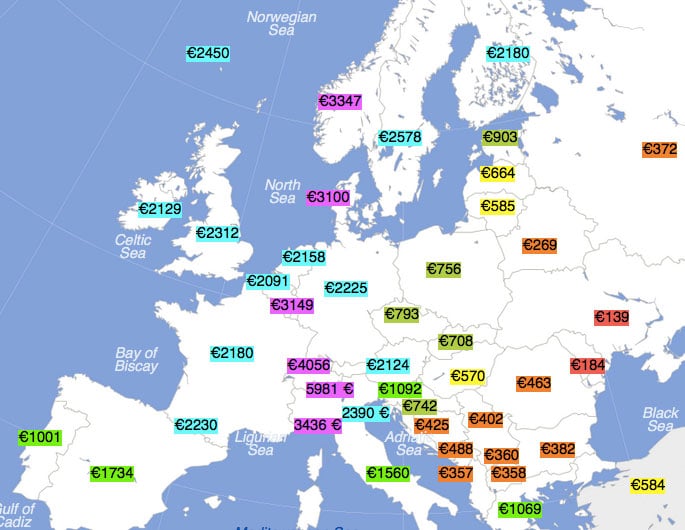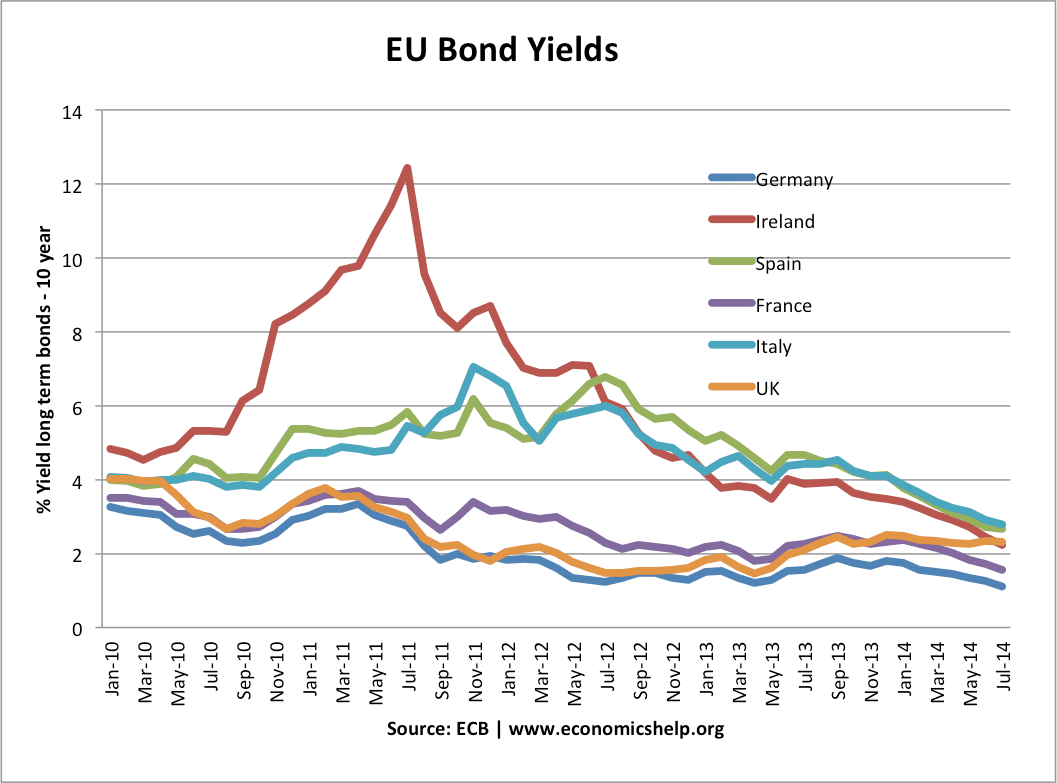From an economic perspective, the EU can be criticised for various reasons including
- Common agricultural policy (CAP)
- Regulated labour markets – higher structural rates of unemployment
- Deflationary bias of ECB
- Problems of Euro
- Problems of free movement of labour
Common Agricultural Policy CAP
The CAP was one of the most inefficient economic policies and a waste of money. At its peak, it took over 70% of the EU budget, even after decades of slow reform, it still accounts for 40% of the budget. The Common Agricultural Policy – in effect subsidised farmers to produce goods that nobody wanted (See CAP). The excess supply was often dumped on world markets creating falling prices and incomes for world farmers. After many years, the worst excesses of CAP have been reformed. But, it remains persistently difficult to end the culture of subsidising agriculture. A significant existing problem with CAP is that it has rewarded large land-owners, with little reflection of social benefit. See: Transfer of funds from poor to rich landowners (Guardian) The taxpayer pays the burden of higher prices and cost to EU.
Regulated Labour Markets
Unemployment in the European Union has been persistently high for the past two decades. This is especially a problem in countries like France and Spain. One reason is the highly regulated labour markets that the EU social charter encourages. The EU has failed to deal with regional and occupational unemployment.
Deflationary Bias
The ECB has inherited the German Bundesbank’s anti-inflationary stance. However, they often place too much emphasis on reducing and inflation – ignoring more pressing problems of unemployment and economic growth. This is especially a problem for countries in the southern Eurozone (Greece, Portugal, Spain and Ireland) who have struggled with a common monetary policy and interest rate.
Euro has created lower economic growth
The EU pushed the creation of the Euro. However, in practise, member countries have struggled to cope with the fixed exchange rate, and lack of independent monetary policy.
Countries in the Euro have been pushed into bond crisis because markets fear a lack of liquidity (ECB can’t act as lender of last resort and print money to buy bonds). This has seen higher bond yields on the debt of Euro countries. As a result of the bond crisis, governments have been pushed into spending cuts and budget austerity. See – EU austerity
However, since 2013, EU bond yields have fallen as the ECB has proved more willing to intervene in the bond markets. However, whether this represents a ‘papering over of cracks’ or a fundamental solution remains to be seen.
Free movement of labour
Free movement of labour and capital is a founding principal of the European Union – designed to forge European harmony and a mixing of European nations. However, since the expansion into the East of Europe – the divergence in average incomes have created pressure for large-scale migration.

This migration has negative costs to both the Eastern European countries who lose their most skilled labour and also western economies, which have experienced a large inflow of labour.
A problem of large inflows of labour is pressure on housing and public services. Although migrants are often net contributors to tax revenues. Migration can be concentrated in certain areas, and there can easily be a perception migrants are to blame for queues in health care and housing. It was a factor behind the UK’s vote to leave the EU in June 2016.
The Brain drain
This is the problem of countries losing their most skilled and mobile labour.
According to the Economist, the loss of skilled workers is a significant problem in many Eastern European economies (Economist Jan 2017)
- Polls of Bulgarian medical students show that 80-90% plan to emigrate after graduating.
- The working population of Latvia has declined 25% since 2000
This outflow of migrants has led to lower economic growth. According to a report by the IMF:
“Empirical analysis suggests that in 2012, cumulative real GDP growth would have been 7 percentage points higher on average in CESEE in the absence of emigration during 1995–2012, with skilled emigration playing a key contributing factor.” IMF 20 July 2016
Given large geographical inequality, the EU should do more to use EU funds to deal with issues of migration encourage investment in lower wage countries. This would be a better use of money than giving to wealthy landowners under CAP.
Related


